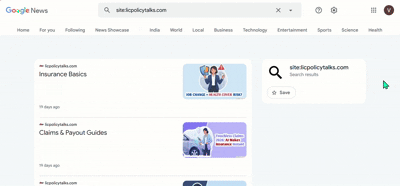
Hi friends! Ever been frustrated by a denied health insurance claim? You’re not alone. Health insurance claim denials are a massive headache for patients and providers alike. In this post, we’ll explore how artificial intelligence is stepping in to tackle this issue head-on. We’ll break down the tech, share real solutions, and show you why AI might just be the game-changer we’ve all been waiting for. Let’s dive in!
Understanding the Scale of Health Insurance Claim Denials
The Financial Impact on Providers and Patients
You know what? Health insurance claim denials aren’t just annoying – they’re expensive. Honestly, the average hospital loses millions annually to denied claims. According to recent data, the AI in Revenue Cycle Management market is projected to grow at a CAGR of 24.2%, reflecting how crucial this problem has become. When claims get denied, providers spend additional resources on appeals while patients face unexpected medical bills. This creates a vicious cycle that strains everyone involved in healthcare.
Common Reasons Behind Denials
Most denials happen for preventable reasons. Coding errors, missing information, and eligibility issues top the list. Understanding common denial reason codes in medical billing is the first step toward solving this problem. Many of these errors could be caught before submission with proper automated checks.
How Denial Rates Have Evolved Over Time
Denial rates have been climbing steadily over the past decade. As insurance rules become more complex, manual processing struggles to keep up. This is where AI healthcare claims technology makes a dramatic difference by handling complexity at scale.
How AI Healthcare Claims Technology is Changing the Game
The Role of Machine Learning in Predicting Denials
Machine learning algorithms can analyze historical claim data to predict which submissions are likely to be denied. These systems identify patterns that humans might miss, flagging potential issues before claims are submitted. AI in medical billing is boosting accuracy by automating complex processes and reducing human error, as shown in this research on AI in Medical Billing.
Real-Time Error Detection and Correction
Modern AI systems can check claims in real-time, catching errors as they happen. This immediate feedback loop prevents mistakes from reaching insurance companies, dramatically reducing denied insurance claims. The technology can verify codes, patient information, and coverage details against constantly updated rulesets.

Case Studies of Successful AI Implementation
Several healthcare providers have reported reduction in denial rates after implementing AI solutions. One hospital system reduced their denials by 38% in the first year alone using health claim automation tools. These success stories demonstrate the tangible benefits of embracing AI technology.
Strategies to Reduce Claim Denials with Automated Systems
Pre-submission Analytics and Validation
Advanced AI systems now offer pre-submission analytics that scan claims for potential issues. These systems compare each claim against thousands of rules and historical data points, flagging anything that might cause a denial. This proactive approach is transforming how providers approach insurance claim solutions.
Automated Documentation Improvement
Incomplete documentation is a major cause of denials. AI tools can now review clinical documentation and suggest improvements before claims are submitted. These systems ensure that all necessary information is present and properly coded, addressing issues that traditionally led to health insurance claim denials.
Continuous Learning from Denial Patterns
The best AI systems learn from every denial, continuously improving their detection capabilities. As they process more claims and outcomes, they become increasingly accurate at predicting and preventing denials. This adaptive learning is crucial for keeping up with changing insurance requirements.
Exploring Advanced Health Claim Automation Tools
Natural Language Processing for Claim Reviews
Natural language processing (NLP) allows AI systems to understand and analyze unstructured clinical notes. This technology can extract relevant information, verify its accuracy, and ensure proper coding. Healthcare AI technology with NLP capabilities is particularly effective at reducing documentation-related denials.

Integration with Electronic Health Records
Seamless integration with EHR systems allows AI tools to access patient data directly, reducing manual data entry errors. This integration creates a more efficient workflow while improving data accuracy. The connection between EHRs and claims management software is becoming increasingly sophisticated.
Customizable Rule Engines for Different Insurers
Different insurance companies have different rules and requirements. Advanced AI systems can be customized with insurer-specific rule sets, ensuring compliance with each payer’s unique guidelines. This customization is essential for effective claim denial prevention across multiple insurance providers.
The Future of Insurance Claim Solutions with AI
Predictive Analytics for Denial Prevention
The future of health insurance AI lies in predictive analytics that can forecast denial trends before they become problems. These systems will analyze market changes, policy updates, and historical patterns to prepare providers for coming challenges. According to recent findings, AI is leading to more prior authorization denials in some cases, highlighting the need for balanced implementation.
Blockchain Integration for Transparent Processing
Blockchain technology combined with AI could create tamper-proof, transparent claim processing systems. This would reduce disputes and create an immutable record of all claim-related activities. The integration of blockchain with automated claims processing represents the next frontier in healthcare technology.
AI-Driven Patient Communication Systems
Future systems will better involve patients in the claims process, using AI to communicate coverage details, required documentation, and claim status. This transparency will help prevent denials caused by patient-side errors or misunderstandings.
Implementing Claims Management Software Effectively
Choosing the Right AI Solution for Your Practice
Selecting the appropriate AI solution requires understanding your practice’s specific denial patterns and workflow needs. Different systems offer varying features, from basic error checking to advanced predictive analytics. The right health insurance AI solution should address your most common denial reasons while integrating smoothly with existing systems.
Staff Training and Change Management
Implementing new technology requires careful change management. Staff need proper training to understand how to work with AI tools effectively. Successful implementation balances technology with human expertise, creating a collaborative environment where AI enhances rather than replaces human decision-making.
Measuring ROI and Success Metrics
To justify the investment in AI technology, practices need to track specific metrics. Reduction in denial rates, faster payment cycles, and decreased administrative costs are key indicators. According to research on claim processing systems, AI can significantly reduce errors and speed up payments when implemented correctly.
FAQs: health insurance AI Qs
Health insurance claim denials represent a significant challenge in healthcare,

Editor-in-Chief • India Policy • LIC & Govt Schemes
Vikash Yadav is the Founder and Editor-in-Chief of Policy Pulse. With over five years of experience in
the Indian financial landscape, he specializes in simplifying LIC policies, government schemes, and
India’s rapidly evolving tax and regulatory updates. Vikash’s goal is to make complex financial
decisions easier for every Indian household through clear, practical insights.





